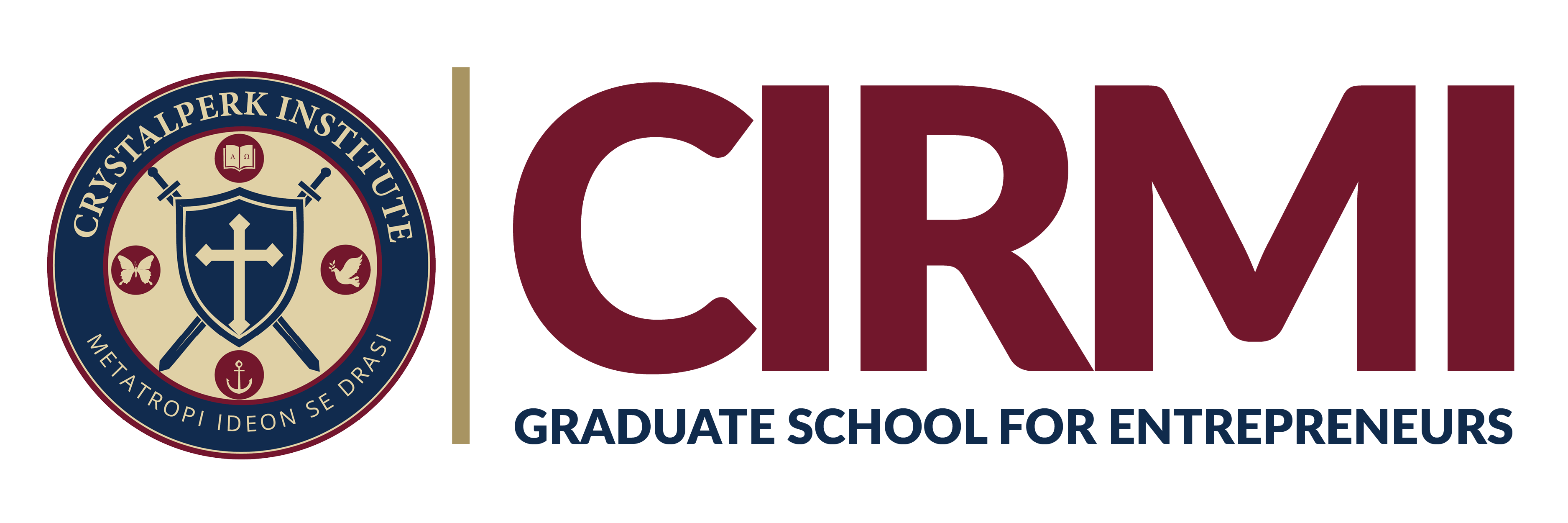CSE AGILE for Government—Solve Problems with Government Leadership Programs
CSE Accelerator for Growth, Innovation, & Entrepreneurial Leadership (AGILE)
In CSE-AGILE government leadership programs, your team will learn new ways of thinking to solve difficult problems, assess and mitigate risk, apply new business skills to actual work projects, get techniques to lead with empathy and inclusivity, and drive organizational change.

How CSE-AGILE Government Leadership Training Development Programs Work
CSE-AGILE is a customizable framework of seven interactive modules. These government leadership training programs enhance an organizational cohort’s business acumen, professional growth, and inclusive and entrepreneurial leadership skills. Senior CSE experts lead each session using The Decalogue Management Methodology™ (DMM)—our renowned solutions-focused methodology.
We customize our government leadership programs with group discussions and scenarios specific to your organization. Sessions can address a specific challenge or project within your organization if desired (not required), with the program culminating in final presentations to senior leadership.
Break
through
here.
How it works
We deliver all government leadership training development programs fully online or in person. If necessary, we may customize the modular topics to best meet your specific objectives. Sessions can accommodate up to 25 colleagues, to ensure each participant has the opportunity to have meaningful interactions with their peers and CSE experts.
Participants attend seven interactive modules, customized to suit your organization’s specific needs. The cohort works together to become part of an energized network within your organization that can create new solutions and ideas. Each module is two hours and focuses on a specific topic. Most modules include an interactive case study and discussion customized with organization-specific content. Many programs also include a team project challenge and incorporate breakout sessions, with the opportunity to report findings to senior leadership. You select the topics that best meet your cohort’s needs.
This program is ideally designed for high-potential employees and/or mid-level managers who are seeking professional development opportunities to enhance their business acumen, professional development, and leadership skills. Senior-level managers are encouraged to lend support, select participants, and provide feedback on company-specific projects, if desired. Organizations would be responsible for selecting individuals (up to 25) to participate in this program.
Organizations may select six, two-hour modules from any of the topics below. Organizations typically use module seven to present team ideas to senior management (optional). We are able to customize a specific topic to meet specific needs, depending upon availability of our experts. A CSE Faculty Director will work with you to select sessions and customize content to your specific learning objectives.
Two examples of seven-module programs designed to enhance leadership skills and communication through entrepreneurship and inclusivity. There are many possibilities available.
!st possibility
- Week 1: Entrepreneurial Leadership & Innovation
- Week 2: Design Thinking
- Week 3: Leading Through Relationships
- Week 4: Systems Thinking
- Week 5: Executing S.M.A.R.T.
- Week 6: Advancing Ideas
- Week 7: Presentations: Entrepreneurial Thought & Action Plans
2nd possibility
- Week 1: Managing in a Diverse Workforce
- Week 2: “Entrepreneuring” Inclusivity
- Week 3: Actionable Allyship: Part 1
- Week 4: Actionable Allyship: Part 2
- Week 5: Leading through Influence
- Week 6: Entrepreneurial Inclusion
- Week 7: Presentations: Entrepreneurial Thought & Action Inclusion Plans
Topics We Cover
Executing S.M.A.R.T.
You need the right innovation and execution processes to achieve organizational impact; the process is the strategy. In this module, we look into two popular approaches to process design and execution: Lean and agile. Lean is a management framework of efficient planning and execution. Agile is a collaborative team approach to project management and strategy execution with analysis and execution working together.
Presentations
Your organization’s Cohort Teams will discuss their challenge and the solutions they propose using the tools they have gained in this program. For example, addressing constituent involvement, utilizing media resources across silos, and building communication across departments to fully utilize resources.
Advancing Ideas
Just because you discover a breakthrough idea doesn’t guarantee others will see as much value in it as you do. We will review principles for how to advance novel ideas through your organization and stakeholder network.
Options One
Without entrepreneurial leadership, there is no innovation. Unfortunately, innovation is a highly abused and misused term. Entrepreneurial leaders impact change. They lead change. However, all change is cultural. Learn the techniques and frameworks that great innovators, inventors, and entrepreneurs use to become creative and lead change.
Design thinking is a powerful, human-centric way to approach problem solving and innovation. Drawn from the world of design and designers, design thinking has been successfully applied to a wide range of contexts and challenges across sectors. It provides an accessible, intuitive tool kit that individuals, teams, and organizations can utilize to frame and reframe problems, deeply understand the needs of people, generate ideas, and prototype potential solutions. We will equip you with the fundamental tools of design thinking to help you approach challenges and problem solving differently.
Learn the importance of high-quality relationships to a leader’s success. Better understand how relationships affect leadership. Reflect on how you can improve your leadership and teamwork skills. Learn and apply evidence-based approaches to building effective relationships.
Options Two
Entrepreneurial leaders succeed when they mobilize support from their stakeholder networks for their individual initiatives. In this session, we leverage principles of systems thinking to help you harness support from key advocates, build coalitions, and construct win-win outcomes with others within your organization.
This module builds on the foundations set in the Managing in a Diverse Workforce and Actionable Solutions module by offering a mindset and method for entrepreneuring inclusion from wherever you are within the company. We will engage in an interactive experience that distinguishes a prediction versus creation mindset and then dive into CSE’s The Decalogue Management Methodology™ (DMM) for advancing change. We then brainstorm your ideas for using DMM™ to advance inclusion within your sphere of influence. The DMM™ framework for entrepreneuring inclusion will be the foundation of your group presentations in the final module of the CSE-Agile program.
This is a Two Part Series:
Although conversations around diversity, equity, and inclusion have been going on for much longer, a particular awareness has emerged during the past few years that has caused many companies and individuals to pause. How might we have been complicit in perpetuating inequality? What can we actually do to impact change? What does it mean to be an ally? While this module will offer some conceptual reminders of key terms for having these conversations—such as bias and identity—the focus will be on what we can do with this knowledge specifically within the client organization.
Part One will focus on developing shared language and examples that focus on us as individuals and our workplace roles. We will support participants through an allyship activity that will ask them to make observations about their immediate workplace surroundings through an inventory and reflection.
Part Two will define allyship more concretely, delving deeper into various facets of allyship and tangible ways of being an ally. Through continuing to look inward and outward, we will explore actionable steps and allyship approaches specific to the workplace culture.
Diversity, equity, and inclusion are core components of 21st century organizational success. Yet, many of us experience challenges identifying and implementing talent management strategies that will enable and propel our desired goals.
First, we will explore talent acquisition processes that inhibit our goals, and how our individual diversities influence the decisions we make, while examining the historical and present-day factors that impact our employees. Other factors we’ll examine include inhibitors and enablers of our collective success, and what role legacy practices, perceptions, and protocols have in our actions. We will conclude by examining our diverse experiences and the impact they have on our own identities.
This module focuses on the topic of “implicit bias” as it affects perceptions, behavior, and relationships. We will address how to lead in ways that leverage the diversity of our colleagues, employees, and other stakeholders, and how to be allies and amplify the voices of others. We will review key terminology, uncover unconscious biases, and explore how to create a new paradigm for an effective and inclusive workplace.
CSE-AGILE for Safety Professionals
CSE-AGILE SAFETY program is a customizable seven, full- day module professional development framework for high-performing and high-potential public safety and police officers. The program trains officers and other leaders to better understand and respond to rapidly changing conditions, often in chaotic environments. It sharpens their entrepreneurial leadership, decision-making, and management skills to help them become more effective leaders on the job and in your community.
- Build Critical Leadership Skills, Entrepreneurial leadership, Decision making, Management and Innovative thinking
- Create Customizable Programs – Resilience and renewal, Performance management, Culture of creativity and innovation, Community relationships, Retention, Resonant leaders and Decision making under stress
CSE-AGILE SAFETY program trains police officers to better understand and respond to rapidly changing conditions, solving problems, and creating social and economic value. “If we can impact how well you make decisions and lead that decision making,”
CSE-AGILE SAFETY program is customizable to each organization’s needs and objectives. This is one of many possible examples. We work with each public safety organization to shape its own program.
Week 1: Taking care of yourself – How can managers in a stressful profession develop their skills as leaders and decision makers? How does this influence their ability to lead and develop others?
Week 2: The best-self – What does science say about the processes that help us transform ourselves into better professionals and better leaders capable of advancement to levels of higher responsibility? What can you learn about yourself from data that will be collected from your colleagues and others who know you?
Week 3: Performance management – How should we use strengths-based coaching and development to improve the performance of our people and accelerate their growth? How does this work?
Week 4: Change – Why is it so hard to make and sustain changes in how we think and act? What has to happen for us to make sustainable changes in ourselves and lead others to make changes?
Week 5: Decision making under stress – What are the factors that we need to understand in order to make good decisions and lead our people to make good decisions? How do leaders make decisions that their organizations will actually implement?
Week 6: Innovation – What have we learned about how innovation actually works? What are the practices of entrepreneurs who imagine new ways of doing things and actually bring these practices to life? Why do we fail to understand this? Can we even think this way in law enforcement?
Week 7: What can we do now for ourselves, our people, and our community? – How should we use what we have learned in this course to take the first steps toward better lives for ourselves and our people?
Start building a sustainable business today
Call us so you have the data and insights you need to make better decisions
